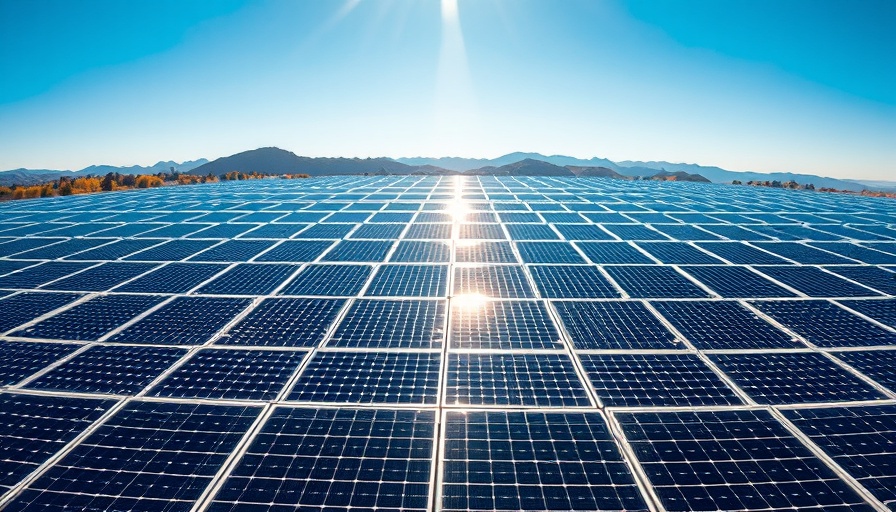
Renewable Energy Demand Soars Amidst Global Shift
The world is currently experiencing an unprecedented surge in energy demand, drawing on a mix of fossil fuels and renewable sources. Recent data from the Energy Institute (EI) reveals that 2024 marked a record high for global energy consumption, with all major energy sources, including oil, gas, coal, nuclear, and hydropower, contributing to this monumental increase.
According to the EI's 74th edition of the Statistical Review of World Energy, renewable sources such as solar and wind energy have grown at an extraordinary rate of 16% last year. China, with its bold strides in renewable energy deployment, accounted for a staggering 57% of these additions. However, while the renewable sector is witnessing remarkable growth, fossil fuel usage has crept up as well, indicating a complex and, at times, contradictory energy landscape.
The Role of China in Shaping Energy Trends
China plays a critical role in the global energy scenario, standing out as the world’s largest greenhouse gas emitter while simultaneously leading the charge in renewable energy advancements. Dr. Nick Wayth, CEO of EI, points out that China’s dual approach—rapidly expanding renewable capacity while relying significantly on coal, gas, and oil—will be a key factor in determining the future course of global energy.
This paradox reinforces a delicate balance: a push for clean energy amid significant fossil fuel dependency. In fact, 60% of China’s electricity comes from coal, demonstrating how the nation's energy choices are pivotal in influencing worldwide energy trends.
Electricity Demand: The New Energy Frontier
The demand for electricity continues to outpace total energy demand, an indicator that we are entering a new age where electricity isn’t just emerging; it's dominating the landscape. In 2024 alone, electricity demand grew by 4%, signaling a transformational shift that might redefine the global energy system for years to come.
With the meteoric rise of solar power generation, forecasted to surpass wind power in just a few years, it becomes clear that electricity is central to this transition. The implications of this shift will not only affect energy policies but will also impact how we consume energy in our everyday lives.
Decarbonization: A Dual Challenge
Global carbon emissions, unfortunately, have not followed the same favorable trend as renewable energy growth. With emissions rising for four consecutive years, there is a pressing need for concerted efforts to accelerate decarbonization while ensuring that energy demands are met.
This delicate dance between growth and sustainability showcases the complexity of the current energy transition. For consumers and policymakers alike, understanding these dynamics becomes critical in shaping effective strategies for achieving a sustainable energy future.
Actionable Insights for Eco-Conscious Consumers
As energy consumption patterns evolve, consumers can make informed decisions that contribute to sustainability. Recognizing the importance of renewable energy sources—like supporting solar energy initiatives or choosing renewable energy providers—can create waves of change in their communities.
Moreover, taking part in educational programs about energy conservation will empower individuals to make smarter energy choices in their daily lives, benefiting both their wallets and the planet.
Concluding Thoughts: The Future of Energy
As we forge ahead into a future where energy demands increase, the synergy between renewable sources and fossil fuels calls for innovative solutions and collective action. By staying informed and making conscious choices, we as consumers can play a part in a greener, more sustainable energy future. The time for action is now!
Joining local sustainability initiatives or advocating for renewable energy policies can foster a culture of environmental responsibility. Consider how your choices can transform energy consumption trends and contribute to a healthier planet. Stay engaged, make a difference!
 Add Row
Add Row  Add
Add 




Write A Comment